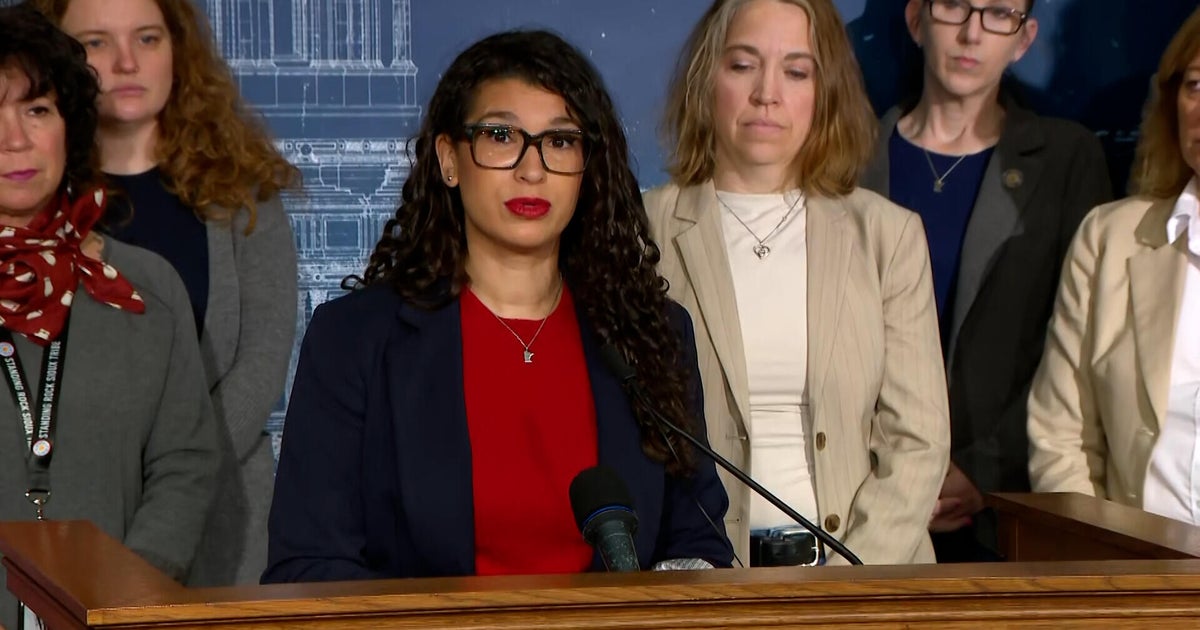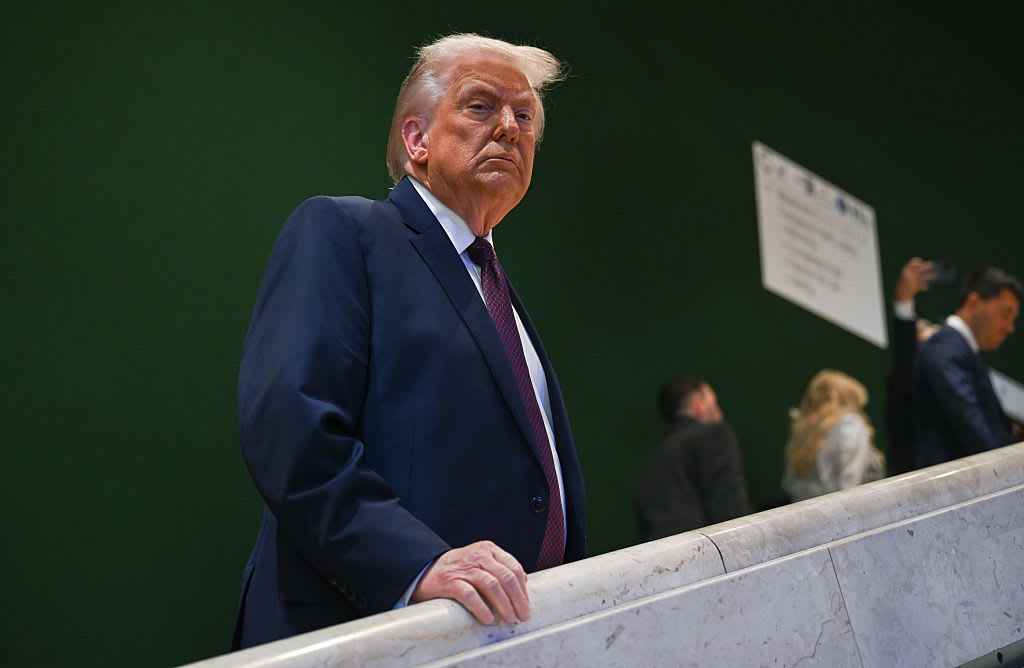Protests plans and pessimism as Trump eyes Davos
GENEVA -- U.S. President Donald Trump will deliver the closing address at the elite World Economic Forum conference in Davos next week, which focuses on "finding ways to reaffirm international cooperation on crucial shared interests," forum organizers have announced. But his presence will likely be met with protests -- and will reportedly be preceded by a small group of Americans on the streets of Davos telling conference participants they are "sorry" for the Trump administration's, "efforts to undermine peace, human rights, and environmental justice around the world."
Mr. Trump's looming visit has also sparked on online petition, launched by a Swiss campaign group, calling on the government to deny the American leader entry to the country. The petition on the "Campax" organization's website, called "Trump not welcome -- stay out of Davos," had garnered more than 15,000 signatures by Wednesday afternoon.
"We would be happy to have 10,000 or 30,000" signatures, Campax leader Andreas Freimuller told the French news agency AFP. "If you are anti-racist or anti-sexist, you would dislike him," he said of Mr. Trump.
Campax has also applied for permission to hold large protests in both Davos and Zurich over the course of the conference, hoping to draw 10,000 at the Zurich demonstration.
The petition was launched on Tuesday after the White House announced that Mr. Trump intended to become the first U.S. president to attend the Davos conference in nearly two decades. Bill Clinton was the last president to go, in 2000.
The WEF says international security, the environment and the global economy will be the key topics at the annual meeting of business leaders, civil society advocates, academics, celebrities and others in the Swiss Alpine resort from Jan. 23-26.
A survey by the World Economic Forum, which organizes the event, has found that more than nine in 10 experts are worried about worsening economic or political confrontation between world powers, amid a trend toward "charismatic strongman politics."
The WEF cites a "deteriorating geopolitical landscape" and increasing cyber threats as key factors behind a pessimistic outlook this year -- adding to continued and preeminent worries about the environment.
Its Global Risks Report released Wednesday is based on a survey of nearly 1,000 experts and decision-makers from business, academia and other fields about 30 risks over a 10-year horizon. The report notes that a global economic rebound can help solve some problems, but it also pointed to increasingly complex challenges.
"Global risk, nowadays, are so interconnected that they can threaten the very systems on which our societies, economies, and international relations are based," said Alison Martin, chief risk officer at Zurich Insurance Group, which contributed to the report, at a London news conference.
WEF said four in five survey respondents expect rising risks "associated with war involving major powers."
The report said geopolitical risks have been exacerbated by falling commitment to "rules-based multilateralism." It noted how President Trump "delivered on some of his unilateralist campaign pledges" by pulling the U.S. out of the Paris climate accord and a trans-Pacific trade pact.
It also said "identity politics" could fan geopolitical and domestic risks.
"Charismatic strongman politics is on the rise across the world," it said. "In addition to the 'America First' platform of President Trump, variations on this theme can be seen in numerous countries from China to Japan, Russia, Turkey, Saudi Arabia, the Philippines and elsewhere."
The report said last year's clash of "strong-state instincts" of Mr. Trump and North Korean leader Kim Jong Un had "created uncertainty about the strength of the norms created by decades of work to prevent nuclear conflict."
Klaus Schwab, the founder of the WEF, whose motto is "committed to improving the state of the world," said the world is facing an "inflection point." He noted a theme of rising competition between countries -- and divisions within them.
One big issue, Schwab added, "will certainly be the future of global cooperation related to trade, environment, fight against terrorism, tax systems, competitiveness -- and in this context it's absolutely essential to have President Trump with us."
Ten heads of state or government from Africa, nine from the Middle East and North Africa, and six from Latin America will join Western leaders including French President Emmanuel Macron, Canadian Prime Minister Justin Trudeau, and British Prime Minister Theresa May in Davos.
The WEF announced the formal schedule on Wednesday, noting that Indian Prime Minister Narendra Modi will deliver the opening address on Tuesday, while Mr. Trump is to make a "keynote" address before Friday's closing.
At its core, the Davos conference is an economic gathering -- and more than 1,900 private sector leaders will be on hand.
Just over one in five participants will be women, a record high percentage for the Davos gathering. Top celebrities including actress Cate Blanchett, actor Shah Rukh Khan, and singer Elton John will turn up for an awards ceremony on Monday before the formal conference start.



